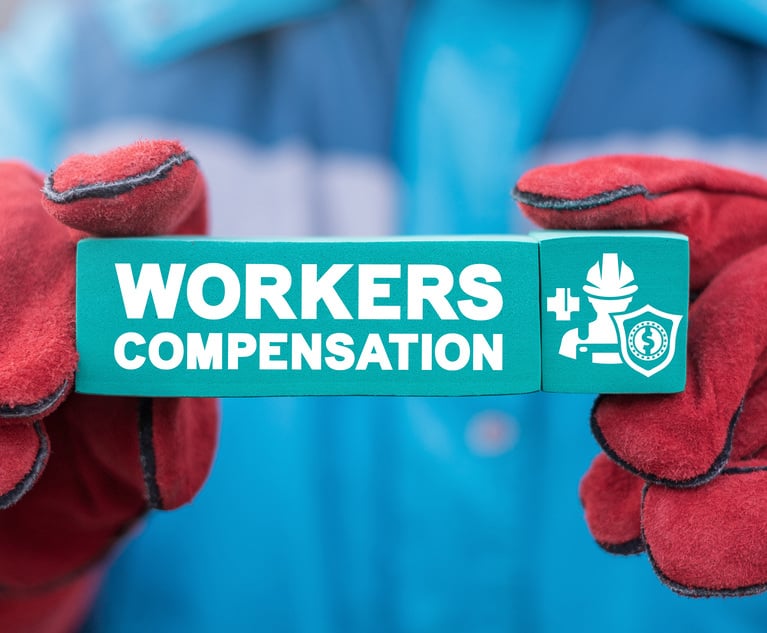A stateSupreme Court decision in late October means that 49-year-oldAllie James of Charleston -- along with potentially thousands ofother workers who will face career-ending injuries -- can securebigger Social Security disability payments during the complicatedmedical and legal aftermath.
|For James, the ruling will mean hundreds of dollars per monthmore in benefits.
|The ruling came after court justices determined that the S.C.Workers' Compensation Commission has the power to choose the methodof accounting they use when doing the math on an injured worker'scompensation benefits.
|Insurance companies previously argued that commissioners didn'thave that power, giving insurance companies a say in the matter.And with that say, some insurance companies were approachinginjured workers and offering to request a method that would lead tomore generous Social Security payments, with a catch: the workerwould have to agree to take smaller workers' compensation awards,according to North Charleston attorney Jody McKnight of the ReisenLaw Firm.
|As the debate swirled in the courtroom, one state Supreme Courtjustice likened the practice to extortion.
|"Their game is over," McKnight said. "This wasn't just unfair,but it was legally inappropriate to use a federal right thatsomeone has as a bargaining chip to force them to accept less thanthe state rights and remedies that our legislature has affordedthem."
|McKnight, who represents James, called it a landmark case -- thefirst of its kind in the United States -- after searches forsimilar cases in other state law databases turned up short.
|The Back Story
James fell down a flightof stairs working at Anne's Dress Shop on King Street in May 2002,putting her permanently out of work with a back injury.
She doesn't remember the fall because she was knockedunconscious. She was later determined to be "totally andpermanently disabled," giving her access to nearly 10 years ofweekly unemployment benefits. But until the ruling, the amount ofmoney she would get through Social Security was up in the air.
|"I'm ecstatic because it doesn't just benefit me, it benefitsall the future workers' compensation cases so they won't have to gothrough all I went through," she said.
|Columbia attorney Mark Cauthen represented Villanova InsuranceCo., which he said hasn't decided whether to appeal. But he offereda defense for the insurance company's ability to have a say inaccounting decisions.
|"You don't want an injured worker making as much or more ondisability," he said. "It's a disincentive for them to return towork, and particularly in this day in age when federal resourcesare so scarce, it doesn't seem fair."
|But Sue Berkowitz of the Appleseed Legal Justice Center,which offered an opinion to the court, said most employees who endup on workers' compensation and Social Security don't makemuch.
|"Even with both [Social Security and workers' compensation],it's still modest means," she said.
|For James, hundreds of dollars per month in Social Securitydisability payments were at stake in the decision.
|Justice center officials figured the math for her. Before theaccident, James made about $605 per week. After the accident, shewas given $403 per week in workers' compensation benefits, anamount she'll get for 500 weeks.
|On top of that, James is entitled to get Social Securitydisability payments for an amount that was under question beforethe ruling.
|Before the ruling, the insurance company could ask for oneaccounting method in which James would only get Social Securityworth $349.90 per month, roughly $88 per week. If it opted for thesecond method, James could have gotten up to $1,077.50 per month,or about $269 per week.
|Aftermath Uncertain
Commission Executive DirectorGary Cannon said his agency, which regulates the state's workers'compensation laws, doesn't know how many cases the ruling couldaffect. During the most recent fiscal year, a total of 29,044 caseswere closed that involved injuries so severe that the worker wasrewarded more than $2,500 in medical expenses or got lost timewages paid.
South Carolina's legal community will point out that the stateSupreme Court reversed itself, turning in a new, unanimousdecision. Such a reversal is rare.
|In January, after justices issued their first opinion againstJames, Justice Donald W. Beatty wrote a strong dissent.
|"This case is before us only because the insurance company wantsto bully the injured worker into accepting less benefits than theworker is entitled to under law. ... I cannot countenance suchabhorrent behavior and I fail to see the judicial attraction toassisting insurance companies in their efforts to mistreat injuredworkers."
|Justices later agreed to rehear the case after McKnight filed apetition, which led to the recent decision.
|Katy Stech is a business reporter with The Post and Courier,Charleston, S.C. This article originally appeared on www.postandcourier.com.
Want to continue reading?
Become a Free PropertyCasualty360 Digital Reader
Your access to unlimited PropertyCasualty360 content isn’t changing.
Once you are an ALM digital member, you’ll receive:
- All PropertyCasualty360.com news coverage, best practices, and in-depth analysis.
- Educational webcasts, resources from industry leaders, and informative newsletters.
- Other award-winning websites including BenefitsPRO.com and ThinkAdvisor.com.
Already have an account? Sign In
© 2024 ALM Global, LLC, All Rights Reserved. Request academic re-use from www.copyright.com. All other uses, submit a request to [email protected]. For more information visit Asset & Logo Licensing.








